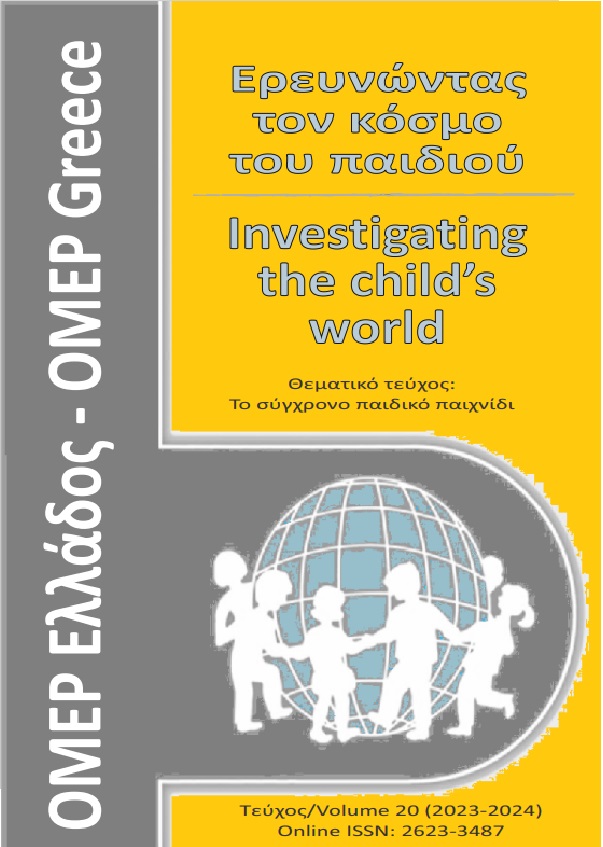Solitary play in preschool age as a means of socialization and autonomy acquisition
Abstract
Play holds a paramount position in children's social development, whether it is free or structured. Particularly, free play fosters cognitive decentralization, creating scenarios for problem-solving that cultivate a culture of acceptance and self-respect, alongside respect for others. However, the distinguishing factor for a child within a group lies in their interpretation and assimilation of external influences on their individual journey. Even in solitary play, a child undergoes a process of observation and evaluation, gradually transitioning to active engagement with peers. This study aims to highlight solitary play within peer group settings as a facilitator of socialization and autonomy among preschool-aged children. Utilizing participant observation in four preschool centers located in the suburbs of Paris, alongside interviews with preschool teachers, it becomes apparent that a child's capacity for independent play within the preschool environment, amidst peers, empowers them to take initiative and make autonomous decisions. Findings suggest that children engage in solitary play to concentrate on activities of their choice and address personal needs, while concurrently developing social skills by negotiating their roles and space within the peer group.
Article Details
- How to Cite
-
Αθανασοπούλου Ά. (2024). Solitary play in preschool age as a means of socialization and autonomy acquisition. Investigating the child’s World, 20, 21–33. https://doi.org/10.12681/icw.35406
- Section
- Scientific articles & educational projects

This work is licensed under a Creative Commons Attribution-NonCommercial 4.0 International License.
Authors who publish with this journal agree to the following terms:
· Authors retain copyright and grant the journal right of first publication with the work simultaneously licensed under a Creative Commons Attribution Non-Commercial License that allows others to share the work with an acknowledgement of the work's authorship and initial publication in this journal.
· Authors are able to enter into separate, additional contractual arrangements for the non-exclusive distribution of the journal's published version of the work (e.g. post it to an institutional repository or publish it in a book), with an acknowledgement of its initial publication in this journal.
· Authors are permitted and encouraged to post their work online (preferably in institutional repositories or on their website) prior to and during the submission process, as it can lead to productive exchanges, as well as earlier and greater citation of published work.



